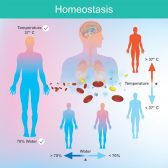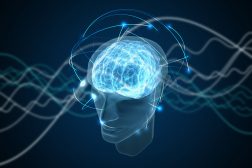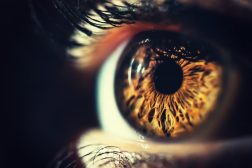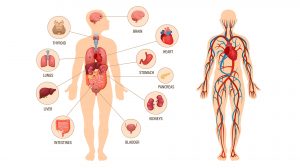Definition
“adjective”
(1) Of, or pertaining to physiology or normal functioning of an organism.
(2) (pharmacology) Pertaining to the action of a drug when introduced to a healthy person (to contrast from the therapeutic action).
Supplement
Related forms: physiologically (adverb)
Synonym: physiologic
You will also like...

Physiological Homeostasis
Homeostasis is essential to maintain conditions within the tolerable limits. Otherwise, the body will fail to function properly. The body does this through feedback control mechanisms, e.g. blood sugar level regulation and temperature regulation. Read this tutorial to know more about the principles of negative feedback control employed by the body to sustain homeostasis...

Animal Water Regulation
Animals adapt to their environment in aspects of anatomy, physiology, and behavior. This tutorial will help you understand how animals adapt to their habitat. For instance, how animals thrive in aquatic habitat and are able to overcome osmosis. It also sheds light on the reasons animals adapt...

Growth and Plant Hormones
Plants, like animals, produce hormones to regulate plant activities, including growth. They need these hormones to respond well to their environment and to sustain growth, development, and dispersal. Plant biologists recognize five major groups of plant hormones: auxins, gibberellins, ethylene, cytokinins, and abscisic acid. Find out in this guide the importance of each hormone in the life of a plant...

Consciousness and Behavior
Human consciousness and behavior are an interesting topic since they are determined and controlled by the brain. Consciousness can be defined by behavior or by electrical pattern of brain activity. Read this tutorial to learn about brain activities, such as sleep, attention, emotion, motivation, consciousness disorders, learning, and memory...

Human Perception – Neurology
This tutorial investigates perception as two people can interpret the same thing differently. Know more about human perception in action, spatial awareness, and illusions. A better grasp of these aspects is useful in understanding how the mind works...

The Human Physiology
Physiology is the study of how living organisms function. Thus, human physiology deals specifically with the physiological attributes of the human body at various levels of organization, i.e. from cellular to tissue and ultimately, physiology at the biological system level. Human physiology is important because it imparts an in-depth understanding of the vital processes that..

